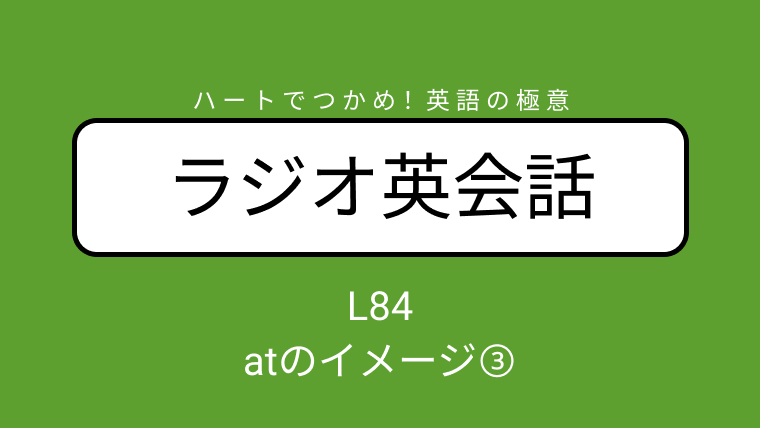NHKラジオ英会話のディクテーション「atのイメージ③」L84 2022/8/4

ディクテーション
講師陣の英会話を書きとり(スクリプト)
大西先生、クリスさん、ろーざさんの英会話部分を書きとってみましょう!(大西先生のギャグもできるだけ書きとります。)
Opening
Roza: 先生、何書いてるの?
Ohnishi: 収録の合間に小説書いてんの。
Roza: どんな小説?
Ohnishi: 麻雀の牌をなくして探していたら、ベッドに転がっていたという内容の話。
Roza: ふーん、タイトルは?
Ohnishi: タイトルですか・・・「枕の索子(ソウズ)」
ラジオ英会話、ハートでつかめ英語の極意、講師の大西泰斗です。
Roza: Hey everyone. Akino Roza here. Ready for today’s lesson?
Chris: Hi guys. Chris McVay here. Well, Roza, we are in the company of a noted author, it seems.
Ohnishi: というわけでさっそく始めていきましょう。
ダイアログ和訳の後
今日はありませんでした
Practice 9:45
Chris: OK it’s practice time again. This will be our last practice of the word, at. So, I want you to keep the basic image … of one point in mind. But now we are going to introduce a selection of useful phrases that you can memorize and use them as often as possible. Here we go, “at most”, “at best”, “at worst”.
Roza: Here is a couple more, “She is at her best.” “I’m at my wit’s end.”
Chris: “I’m at my wit’s end.” This is a really nice expression so try to memorize it, OK?
Roza: Definitely.
Chris: And a couple more to finish, “He’s god at English.” And the last one, “He’s not a genius at all.”
Well done, guys.
Roza: Excellent work.
Ending
Ohnishi: Hey Chris, I think you are very good at public speaking. Is there any way to become good at it?
Chris: Well, I don’t know if I’m good or not, but I usually answer such a question with preparation is the key. But today, I think we shouldn’t underestimate the value of your own voice. Many presenters are rather monotonous, but the best presenters vary their tone of voice a lot, to keep the audiences’ interest.
・・・・
Ohnishi: というわけで今日はこの辺で。
All: Bye.
I use the answer みたいに聞こえますが、usually にするといい感じです。
2つ目のところはちょっと悩みましたが、audiences' interest と、聴衆たちの興味、にしておきました。
~ ディクテーションした内容やその解釈などに、聞き間違いや認識違いがある可能性はあります。ご了承ください


